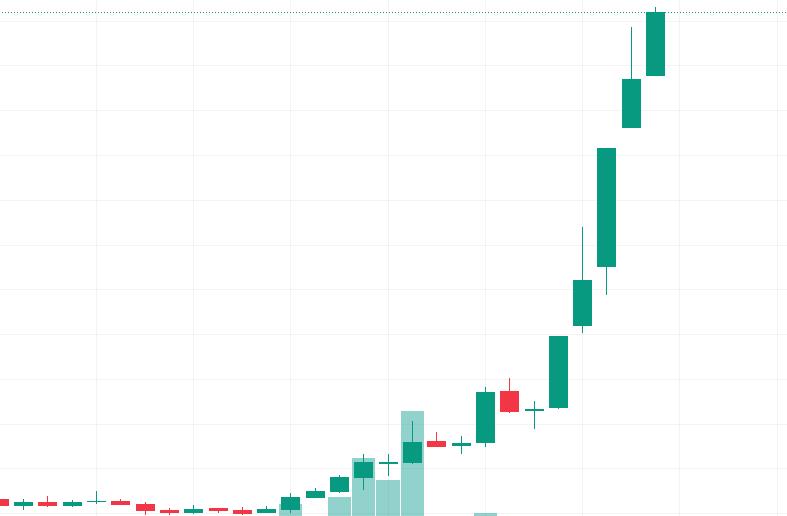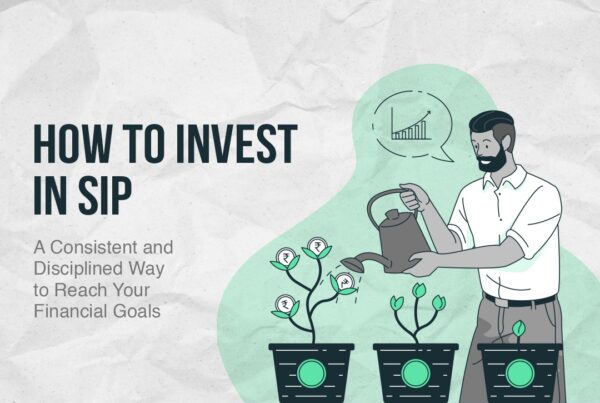Table of Contents
Introduction
What are Value Stocks?
Benefits and Challenges of Investing in Value Stocks
What are Growth Stocks?
Benefits and Challenges of Investing in Growth Stocks
Value vs. Growth Stocks: Which Is Best for You?
Conclusion
When diving into the world of stocks, one of the first decisions investors encounter is whether to focus on value or growth stocks.
Both stocks possess unique characteristics that are suitable for various investment strategies and risk tolerances. Understanding these differences can guide you in making informed decisions that align with your financial goals and preferences.
Value Stocks

Value stocks are shares of companies identified as undervalued based on fundamental analysis. Typically, these stocks belong to large, established companies with stable earnings, strong cash flow, and lower price-to-earnings (P/E) ratios compared to the overall market.
The Price-to-Earnings (P/E) ratio is a financial metric used to assess a company’s valuation by dividing its current stock price by its earnings per share (EPS). It provides investors with an indication of how much they are paying for each unit of earnings generated by the company.
For instance, if a company’s stock is trading at Rs 100, but analysts estimate its true worth to be Rs 200, these stocks are considered undervalued. Over time, they tend to converge towards their estimated fair value. Analysts determine this real value based on factors such as the company’s market position and its financial health.
Stocks can become undervalued due to reasons like negative public perception from scandals, poor financial performance, unexpected earnings declines, management issues, or legal challenges. Despite these setbacks, savvy investors view them as strategic buying opportunities. They anticipate that once sentiment-driven devaluation subsides, the stock price will rebound to reflect its true value.
Examples of Value Stocks

General Electric (GE) serves as a prime example of a value stock. In October 2023, Morningstar estimated its fair value at $123 (approximately Rs. 10,271 as of now), while its actual stock market value was $108 (approximately Rs. 9,018.64 as of now).
The difference between GE’s fair value and market value underscores its robust fundamentals.
Despite facing challenges such as downturns in its energy-related business and pressures on earnings and cash flow exacerbated by the COVID-19 pandemic, GE has demonstrated resilience. It has surpassed its fair value, currently valued at $163.53, reflecting its ability to meet and exceed market expectations over time.
Some examples of value stocks in the Indian market in 2024 are Nestle India, Coal India and Gillette India.
Benefits of Investing in Value Stocks
- Stability and Income Generation: Value stocks appeal to investors seeking stability and consistent income. Many value stocks pay dividends, providing a reliable source of passive income.
- Established Companies: These stocks typically belong to well-established companies with a history of stable earnings and strong cash flow, offering reassurance to investors.
- Lower Risk and Volatility: Value stocks typically exhibit lower risk and volatility compared to growth stocks. This stability can help investors preserve capital during market fluctuations.
- Outperformance in Downturns: During economic contractions, value stocks tend to outperform growth stocks due to their defensive characteristics and lower volatility. This resilience can lead to better portfolio performance during challenging market conditions.
Challenges of Investing in Value Stocks
- Underperformance in Growth Periods: Value stocks may lag behind growth stocks during periods of economic expansion when growth companies thrive, potentially missing out on higher returns available in growth-oriented sectors.
- Complex Valuation: Identifying the true value of a value stock requires a comprehensive analysis of financial statements, market conditions, and economic outlook. This complexity can be challenging for investors.
- Sector-Specific Risks: Certain sectors traditionally associated with value stocks, such as utilities and consumer staples, may face unique risks and regulatory challenges that affect their performance.
- Potential for Value Traps: Investors must be cautious of value traps, where stocks appear cheap but continue to decline or stagnate due to underlying fundamental issues. Avoiding these mistakes requires thorough research and a solid understanding of company fundamentals.
Growth Stocks

Growth stocks represent shares of companies poised for significant expansion and wealth creation through appreciation in stock value. These firms typically reinvest their earnings into growth initiatives, prioritizing future expansion over paying dividends. They often exhibit high price-to-earnings (P/E) ratios, reflecting investor optimism about their potential for substantial revenue growth.
Issuance of growth stocks is typically reserved for companies with a strong foundation, robust business development strategies, and effective management. Companies that issue growth stocks in India usually report an annual return on equity (RoE) of 15% or more.
Examples of Growth Stocks
Amazon is a prime example of a growth stock, renowned for its rapid revenue expansion, continuous innovation, and dominant market presence. Over the decades, investors have driven amazon’s stock price upward, recognizing its significant growth potential. The company consistently reinvests its profits into expanding its operations, focusing on long-term growth rather than immediate earnings.
Founded in 1994, amazon started with a humble stock value of just $0.12 (approximately INR 10.03 as of now) in 1997. By 2024, its stock price had surged to $200 (approximately INR 16,706 as of now). Initially an online bookstore, amazon has transformed into a global e-commerce giant, offering an extensive range of products from groceries to furniture.
Beyond retail, amazon has diversified into various sectors, including video streaming with Amazon Prime Video and cloud computing with Amazon Web Services (AWS), showcasing its innovative growth and market dominance.
Some examples of growth stocks in the Indian market in 2024 are Canara bank, Union bank of India and Infosys.
Benefits of Investing in Growth Stocks
- Potential for Significant Capital Appreciation: Growth stocks offer investors the potential for substantial increases in stock value over time, driven by strong revenue growth and market optimism.
- Dynamic Industries: These stocks often belong to companies operating in dynamic industries with ample opportunities for expansion and market leadership. This environment promotes rapid growth and a competitive edge.
- Innovation and Technological Advancements: Investors benefit from the wave of innovation and technological advancements driving growth in these companies. For example, Amazon’s continuous expansion into diverse sectors has consistently increased its market value and delivered attractive returns to investors.
Challenges of Investing in Growth Stocks
- Higher Volatility and Risk: Growth stocks are prone to higher volatility compared to value stocks, experiencing sharp price fluctuations driven by market sentiment and growth expectations.
- Economic Sensitivity: Growth companies may struggle during economic downturns if growth projections are not met or if market conditions deteriorate. This sensitivity can lead to significant price declines during periods of economic uncertainty.
- Investor Vigilance Required: The high stakes and potential instability of growth stocks require investors to be vigilant and well-informed. Thorough research and understanding of company fundamentals, market dynamics, and economic trends are essential for navigating the risks associated with growth investing.
Value vs. Growth Stocks: Which is Best for You?

Deciding between value and growth stocks depends largely on your investment goals, risk tolerance, and time horizon. Here’s a brief look at the comparison of both.
| Feature | Value stocks | Growth stocks |
|---|---|---|
| Risk Tolerance | Less volatile, suitable for conservative investors | More volatile, suitable for higher risk appetite |
| Investment Horizon | Ideal for a steady income and capital preservation | Ideal for long-term capital appreciation |
| Performance During Economic Downturns | Show resilience due to lower valuations and dividends | May decline more but recover faster post-crisis |
| Suitable For | Risk-averse investors | Those seeking high returns |
Conclusion
Choosing between value vs. growth stocks ultimately depends on understanding your financial objectives and risk tolerance. Value stocks offer stability and income, while growth stocks present opportunities for significant capital appreciation.
While growth stocks are generally expected to decline during economic downturns, there can be exceptions. For instance, during the COVID-19 pandemic, growth stocks like Amazon surged despite the economic downturn.
This highlights that multiple factors can influence stock prices. Therefore, selecting stocks solely based on their categorization as value or growth stocks may not always be wise. It’s crucial to assess the overall performance, foundation, and future potential of the company. Additionally, analyzing the sector the company operates in and its resilience during different economic conditions is essential.
Given the complexities of the stock market, consulting with a financial expert is crucial. A financial expert can help you execute personalized strategies tailored to your specific needs and goals. They can help you navigate the dynamic world of stock investing, ensuring you make informed decisions.
Successful investing lies in aligning your strategy with your financial situation and objectives. By evaluating the characteristics and performance of both value and growth stocks with professional help, you can build a diversified portfolio that effectively balances risk and reward over the long term.
Please be aware that all investments are subject to market risks. This content is intended for informational purposes only and should not be considered financial advice. For personalized guidance, please consult a financial expert




